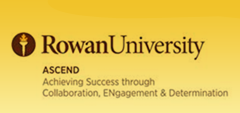Reshaping "DREAMers" Expectations on Education
Loading...
Start Date
3-2-2022 12:45 PM
End Date
3-2-2022 1:15 PM
Document Type
Presentation
Description
DREAMer refers to an undocumented immigrant who entered this country illegally as a minor. The vast majority of these minors accompanied their parents/guardians on this journey. They did not make the intentional decision to break the law. As a result, they were eligible for unique immigration status under the DACA (Deferred Action for Childhood Arrivals) program in 2012, which made it easier for recipients to become productive members of their communities without the fear of deportation. However, the program does not provide legal residency or a pathway towards citizenship for the recipients. DACA recipients are in an awkward "limbo" state with immigration and the help they can receive from the federal and state government. The result is that this community faces many unique obstacles when trying to pursue higher education. Recipients are not eligible for federal financial aid, welfare, or federal loans. These barriers can be discouraging for DACA recipients. Only 13% of DACA-eligible students are enrolled in graduate or professional schools. In this presentation, I want to help DREAMers and the community understand resources available to further their educations. I will be focusing on options available to them in terms of school choices that will accept their immigration statuses, financial aid resources, and possible solutions of how we as a society can help elevate this community.
Reshaping "DREAMers" Expectations on Education
DREAMer refers to an undocumented immigrant who entered this country illegally as a minor. The vast majority of these minors accompanied their parents/guardians on this journey. They did not make the intentional decision to break the law. As a result, they were eligible for unique immigration status under the DACA (Deferred Action for Childhood Arrivals) program in 2012, which made it easier for recipients to become productive members of their communities without the fear of deportation. However, the program does not provide legal residency or a pathway towards citizenship for the recipients. DACA recipients are in an awkward "limbo" state with immigration and the help they can receive from the federal and state government. The result is that this community faces many unique obstacles when trying to pursue higher education. Recipients are not eligible for federal financial aid, welfare, or federal loans. These barriers can be discouraging for DACA recipients. Only 13% of DACA-eligible students are enrolled in graduate or professional schools. In this presentation, I want to help DREAMers and the community understand resources available to further their educations. I will be focusing on options available to them in terms of school choices that will accept their immigration statuses, financial aid resources, and possible solutions of how we as a society can help elevate this community.


